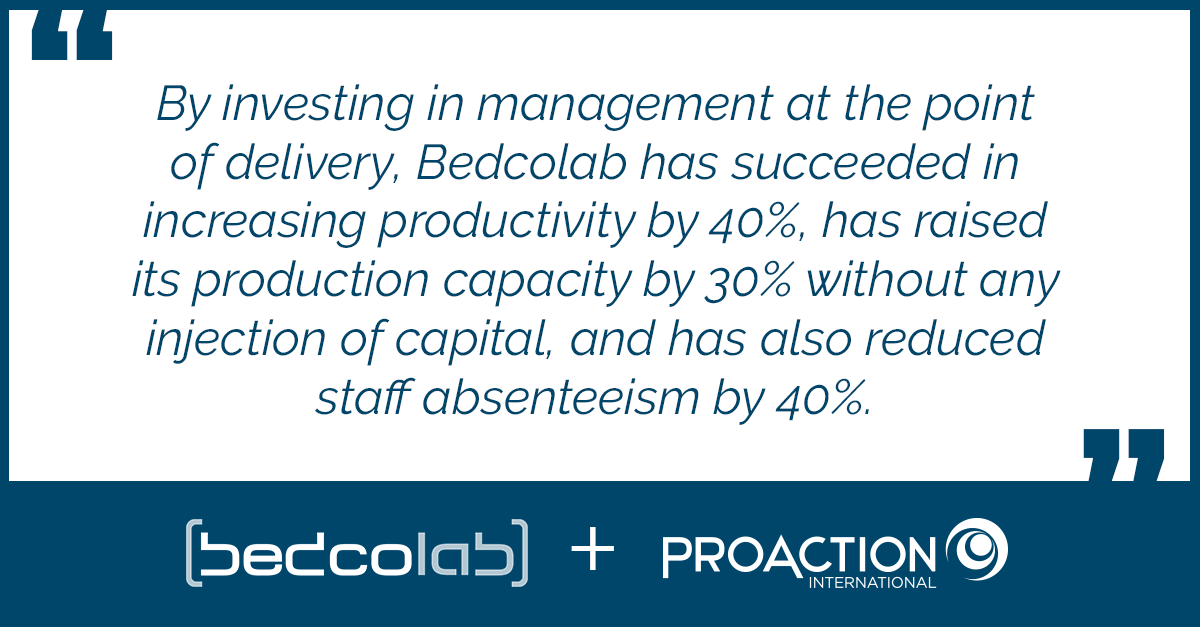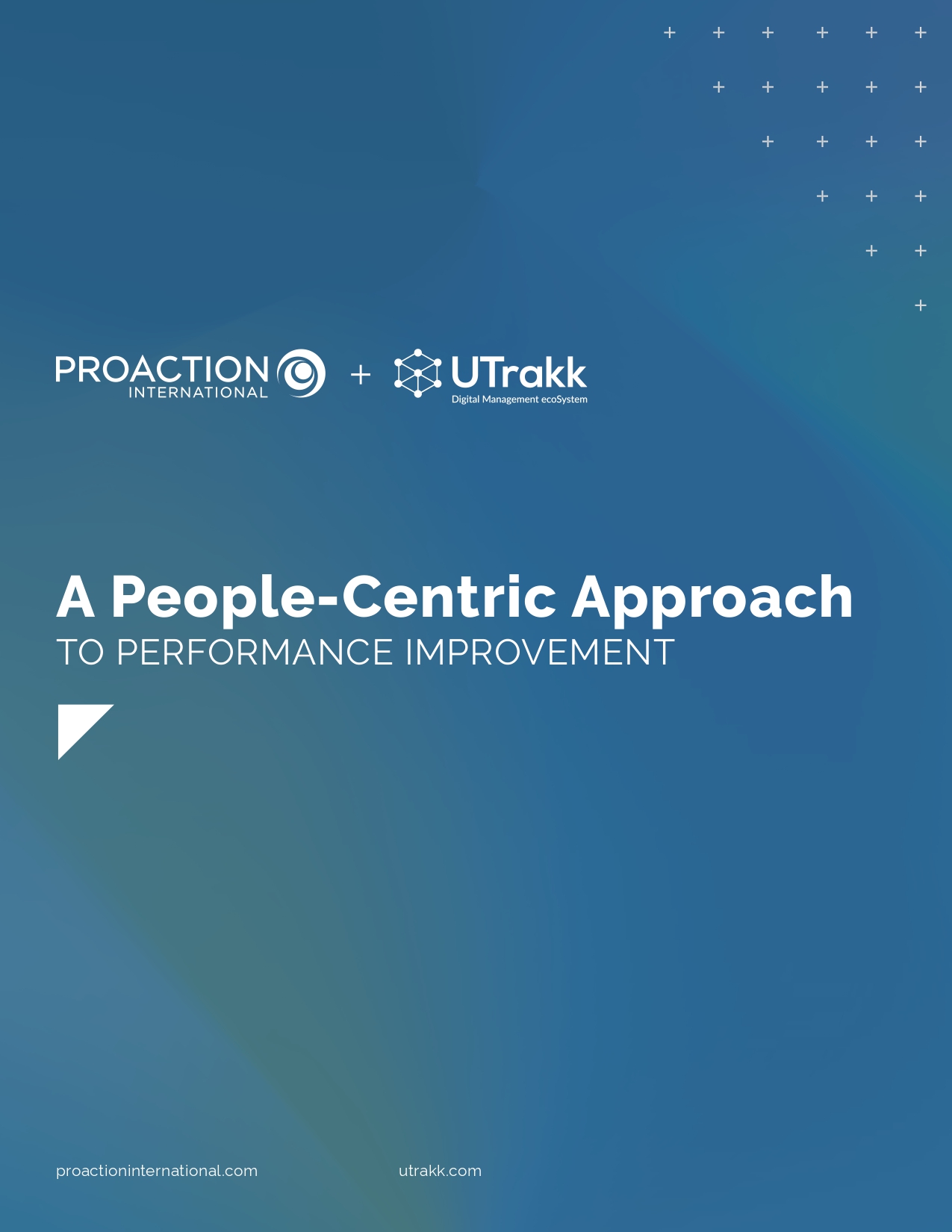1. IMPROVING THE EFFECTIVENESS OF MANAGERS AND OF THE WORK ENVIRONMENT
Through a better understanding of their roles, first-line managers started moving away from their reactive mode and began to place more emphasis on monitoring performance, on planning and on team mobilization. By shifting their focus away from manual tasks and the resolution of recurring issues, Bedcolab’s supervisors have adopted a management approach aiming to steer their teams’ efforts, to recognize their work and to empower each employee towards communication and the resolution of day-to-day issues.
2. ONGOING USE OF PERFORMANCE INDICATORS
The ability to meet daily targets depends on one’s capacity to measure performance in real time. Yet, too many companies have insufficient knowledge of their production standards or are unable to justify a wide variation between technicians doing the same job. At Bedcolab, supervisors placed particular emphasis on determining production standards, on respecting best practices and on communicating the importance of always reaching targets. This focus gradually allowed the company to set ever more ambitious performance targets and therefore become more competitive.
3. INTRODUCTION OF A CONTINUOUS IMPROVEMENT TEAM
Introducing a continuous improvement team has become essential for any company’s competitiveness in our ever more complex, competitive environment. Companies aren’t just hounded by local players any more. Technological improvements and the proliferation of international trade deals are factors that influence competitiveness, yet over which companies have little control. At Bedcolab, the introduction of this team allowed the work initiated by Proaction International to be continued, and for management coaching methods to be applied, ensuring the necessary management maturity to achieve world-class performance.
The case of Bedcolab demonstrates the determining role of first-line managers on business productivity and mobilization. This is all too often neglected by management teams, despite the fact that it is a key factor to competitiveness. Before investing time and money in recruitment during a labor shortage, businesses must first ask themselves whether their workforce is conscious of their daily performance levels, and whether they are constantly reliving the same issues, which impact upon performance. In many cases, they already know the answer…
Click here to learn more about how Proaction International's experts can help develop your teams' leadership to increase business productivity and mobilization.
Ready to take action? Let's discuss your project.






